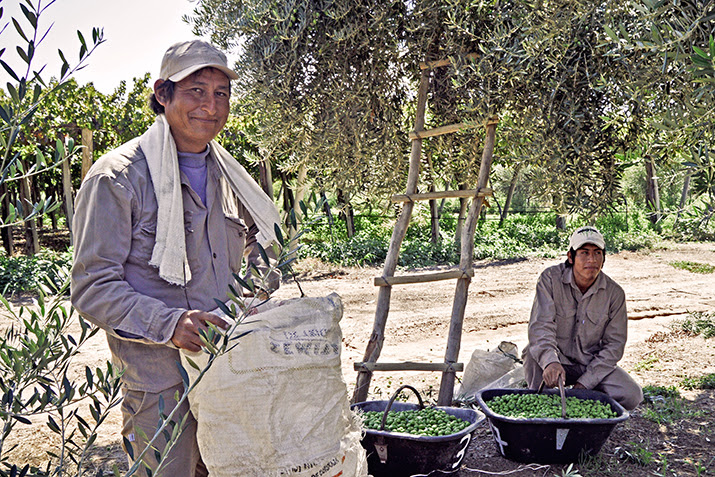
La Riojana Cooperative olive farmers harvest organic olives that will soon be cold-pressed into olive oil.
Olive oil is a key part of what makes the Mediterranean diet good for your health, but when you buy La Riojana fair trade organic olive oil, your purchase also benefits the health of an entire community. Fair trade certification empowers members of La Riojana Cooperative in Argentina to invest in community projects, like the building of a new healthcare center in their local village of Tilimuqui.
Food co-ops like ours are proud to partner with La Riojana Cooperative, the largest certified fair trade wine and olive oil cooperative in Argentina, to bring our customers a meaningful choice when it comes to everyday healthy cooking staples like olive oil. Just like a food co-op, La Riojana is a company built by the community to benefit the community. Over 500 family farmers and winemakers collaborate to produce wines and olive oils to rival those from the Mediterranean. You can find their olive oil in food co-ops across the country, many also carry their fair trade, organic wines too.
Fair trade certification is the factor that significantly sets La Riojana apart from its South American peers in the olive oil and wine industry. Fair trade standards ensure fair prices and a living wage for farmers, establish safe working conditions, protect human rights and provide for community development projects. Since their certification in 2006, La Riojana has completed 36 community development projects, including establishing a local water facility to provide fresh running water, and the construction of the community’s first secondary school for kids age 13-18. Most recently, they’ve turned their attention on improving local access to healthcare.
Availability of healthcare is central to a community’s ability to grow and flourish. La Riojana’s clinic project will offer medical care for over 10,000 people in the region and includes the purchase of the region’s first ambulance. In addition to providing general medical care and outpatient services, the new health center will offer maternity care and services for babies and young children. It will also be a dedicated research and treatment facility for regional endemic diseases, in partnership with the local university, Universidad de Chilecito.
This article originally appeared on the Co+op, stronger together website.






